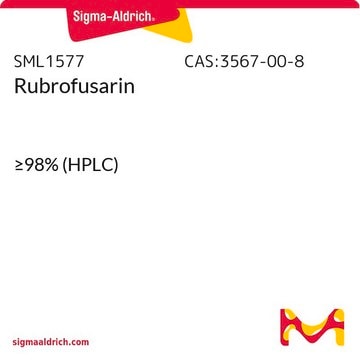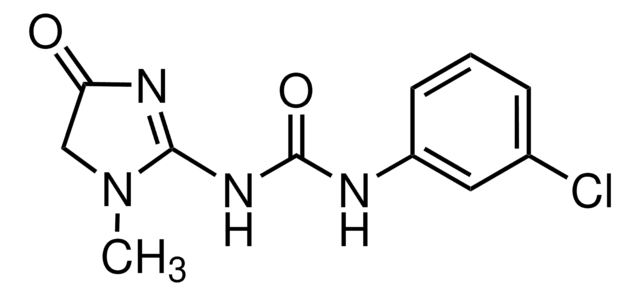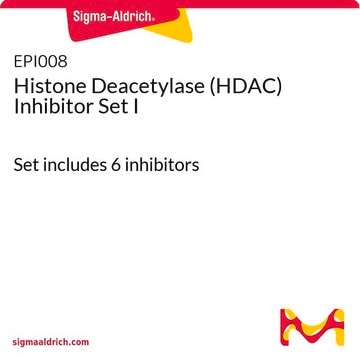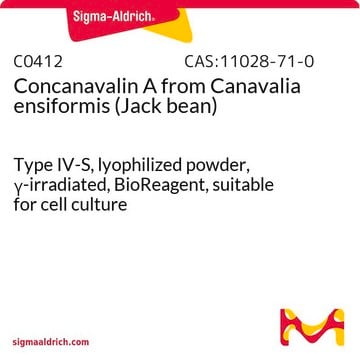Wichtige Dokumente
A8851
Apicidin
≥98% (HPLC), from microbial
Synonym(e):
Cyclo[(2S)-2-amino-8-oxodecanoyl-1-methoxy-L-tryptophyl-L-isoleucyl-(2R)-2-piperidinexcarbonyl]
About This Item
Empfohlene Produkte
Biologische Quelle
microbial
Qualitätsniveau
Sterilität
non-sterile
Assay
≥98% (HPLC)
Form
solid
Löslichkeit
DMSO: ~1 mg/mL
Wirkungsspektrum von Antibiotika
parasites
Wirkungsweise
enzyme | inhibits
Versandbedingung
wet ice
Lagertemp.
−20°C
SMILES String
[H][C@]12CCCCN1C(=O)[C@@H](NC(=O)[C@H](Cc3cn(OC)c4ccccc34)NC(=O)[C@H](CCCCCC(=O)CC)NC2=O)C(C)CC
InChI
1S/C34H49N5O6/c1-5-22(3)30-34(44)38-19-13-12-18-29(38)33(43)35-26(16-9-7-8-14-24(40)6-2)31(41)36-27(32(42)37-30)20-23-21-39(45-4)28-17-11-10-15-25(23)28/h10-11,15,17,21-22,26-27,29-30H,5-9,12-14,16,18-20H2,1-4H3,(H,35,43)(H,36,41)(H,37,42)/t22?,26-,27-,29+,30?/m0/s1
InChIKey
JWOGUUIOCYMBPV-PYAAAQPJSA-N
Allgemeine Beschreibung
Anwendung
Biochem./physiol. Wirkung
Leistungsmerkmale und Vorteile
Lagerklassenschlüssel
11 - Combustible Solids
WGK
WGK 3
Flammpunkt (°F)
Not applicable
Flammpunkt (°C)
Not applicable
Persönliche Schutzausrüstung
Eyeshields, Faceshields, Gloves, type P3 (EN 143) respirator cartridges
Analysenzertifikate (COA)
Suchen Sie nach Analysenzertifikate (COA), indem Sie die Lot-/Chargennummer des Produkts eingeben. Lot- und Chargennummern sind auf dem Produktetikett hinter den Wörtern ‘Lot’ oder ‘Batch’ (Lot oder Charge) zu finden.
Besitzen Sie dieses Produkt bereits?
In der Dokumentenbibliothek finden Sie die Dokumentation zu den Produkten, die Sie kürzlich erworben haben.
Kunden haben sich ebenfalls angesehen
Unser Team von Wissenschaftlern verfügt über Erfahrung in allen Forschungsbereichen einschließlich Life Science, Materialwissenschaften, chemischer Synthese, Chromatographie, Analytik und vielen mehr..
Setzen Sie sich mit dem technischen Dienst in Verbindung.















